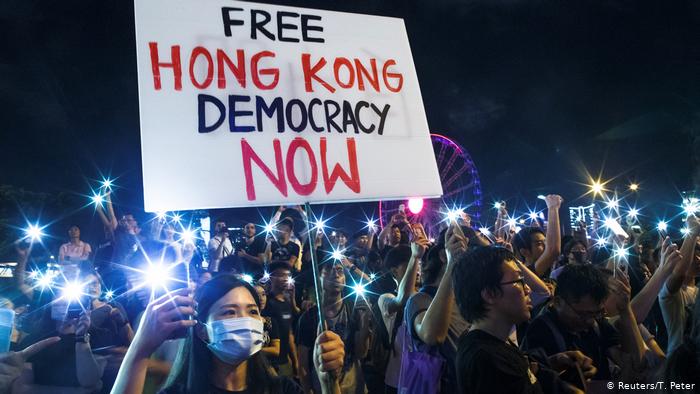Hong Kong’s freedoms are being violated by new security laws.
According to the BBC:
What is this law all about?
Hong Kong was always meant to have a security law, but could never pass one because it was so unpopular. So this is about China stepping in to ensure the city has a legal framework to deal with what it sees as serious challenges to its authority.
The details of the law’s 66 articles were kept secret until after it was passed. It criminalizes any act of:
– secession: breaking away from the country
– subversion: undermining the power or authority of the central government
– terrorism: using violence or intimidation against people
– collusion with foreign or external forces
The law came into effect at 23:00 local time on 30 June, an hour before the 23rd anniversary of the city’s handover to China from British rule.
It gives Beijing powers to shape life in Hong Kong it has never had before. Critics say it effectively curtails protest and freedom of speech – China has said it will return stability.
– Crimes of secession, subversion, terrorism and collusion with foreign forces are punishable by a maximum sentence of life in prison
– Damaging public transport facilities can be considered terrorism
– Those found guilty will not be allowed to stand for public office
– Companies can be fined if convicted under the law
– Beijing will establish a new security office in Hong Kong, with its own law enforcement personnel – neither of which would come under the local authority’s jurisdiction
– This office can send some cases to be tried in mainland China – but Beijing has said it will only have that power over a “tiny number” of cases
– In addition, Hong Kong will have to establish its own national security commission to enforce the laws, with a Beijing-appointed adviser
– Hong Kong’s chief executive will have the power to appoint judges to hear national security cases, raising fears about judicial autonomy
– Importantly, Beijing will have power over how the law should be interpreted, not any Hong Kong judicial or policy body. If the law conflicts with any Hong Kong law, the Beijing law takes priority
– Some trials will be heard behind closed doors.
– People suspected of breaking the law can be wire-tapped and put under surveillance
– Management of foreign non-governmental organizations and news agencies will be strengthened
– The law will also apply to non-permanent residents and people “from outside [Hong Kong]… who are not permanent residents of Hong Kong”.
Sorry, no records were found. Please adjust your search criteria and try again.
Sorry, unable to load the Maps API.
Loading...

